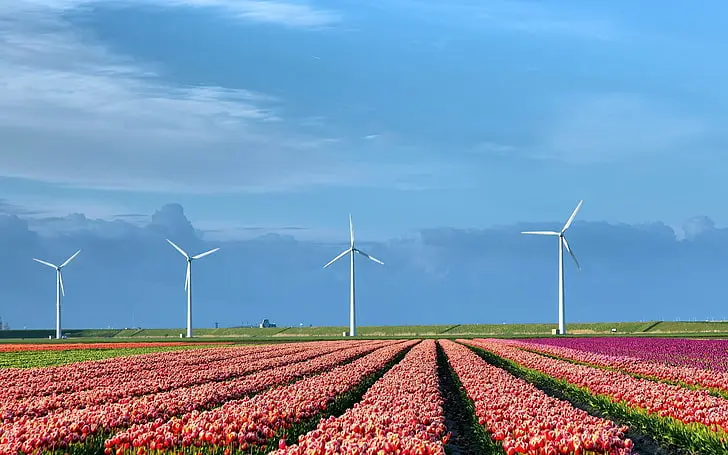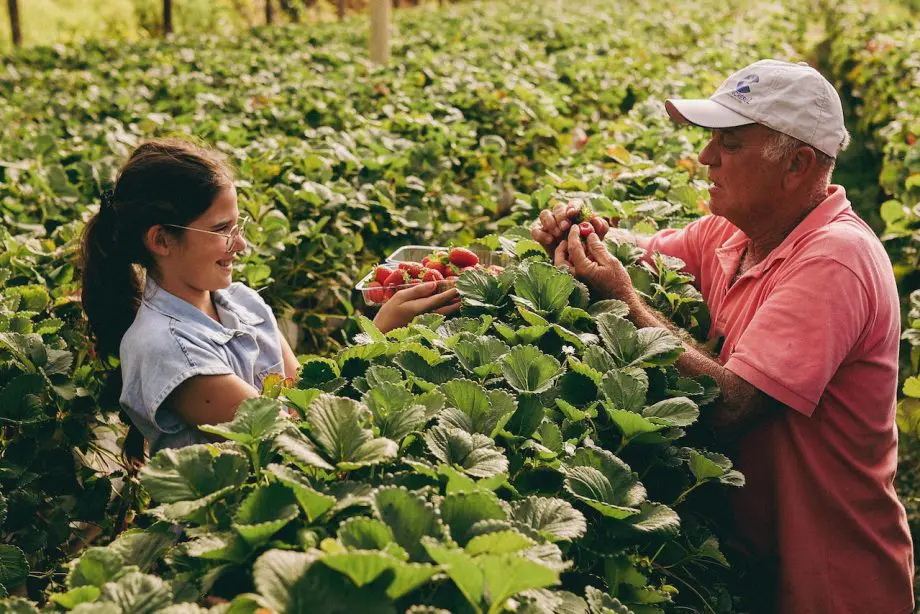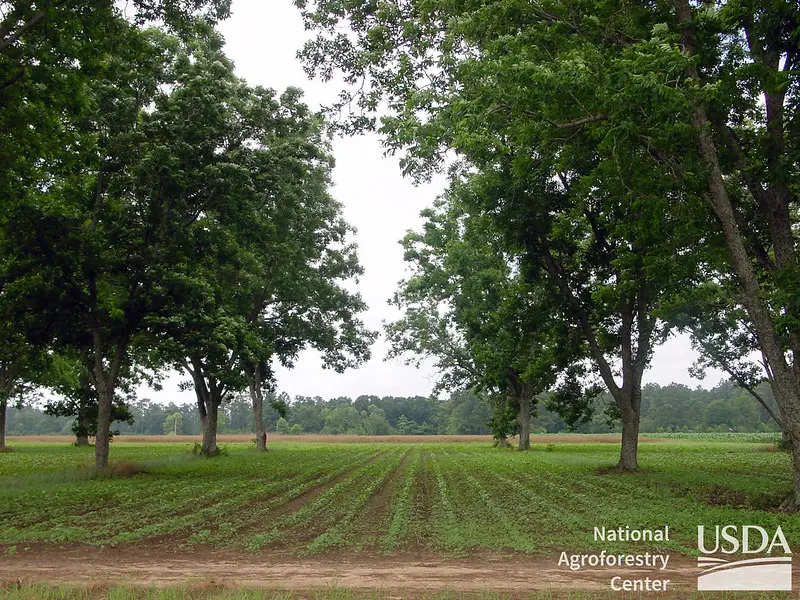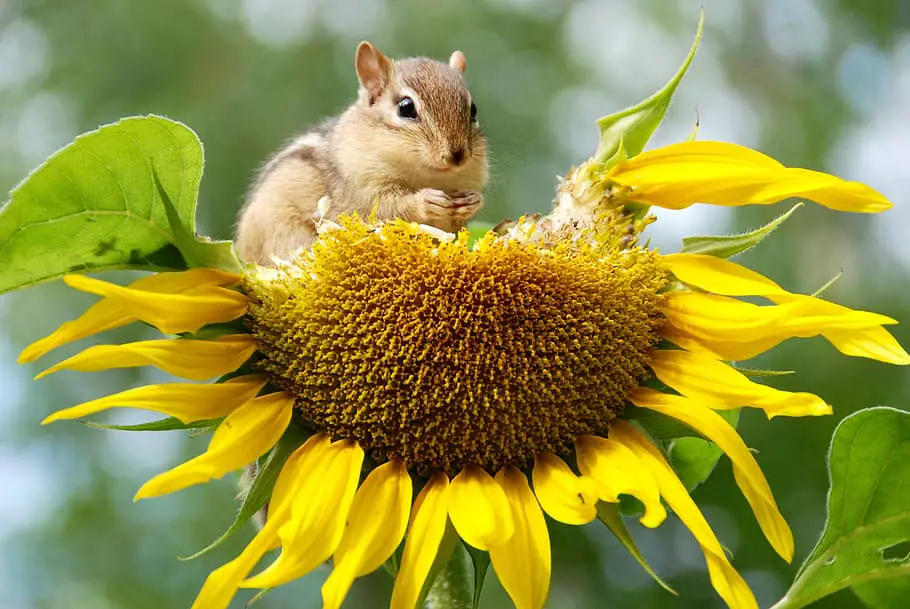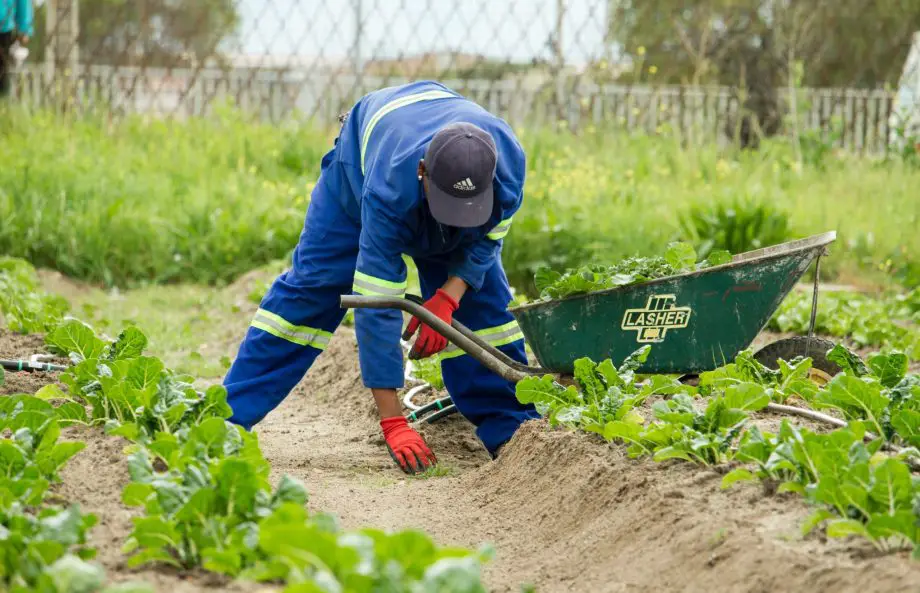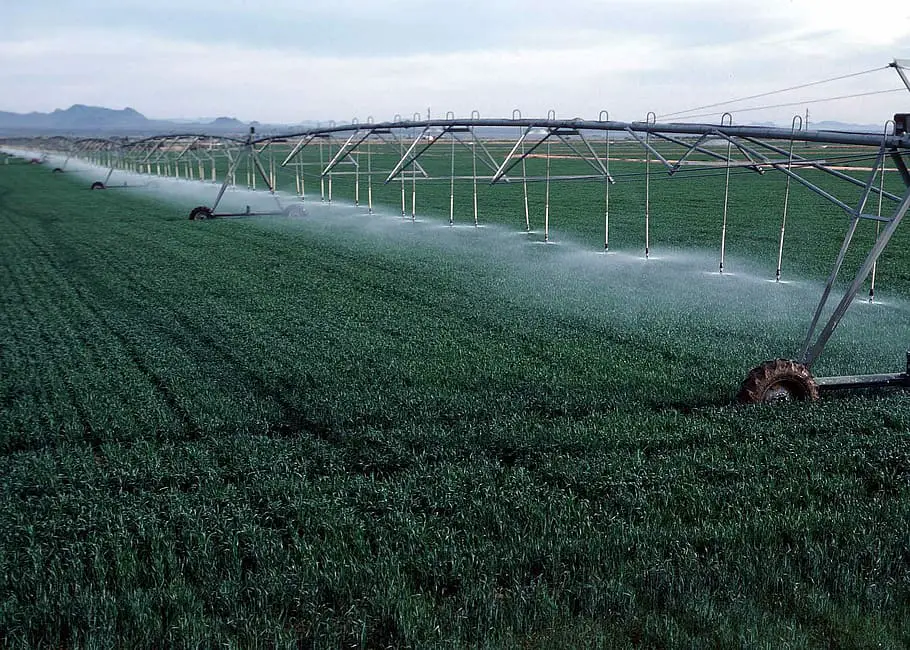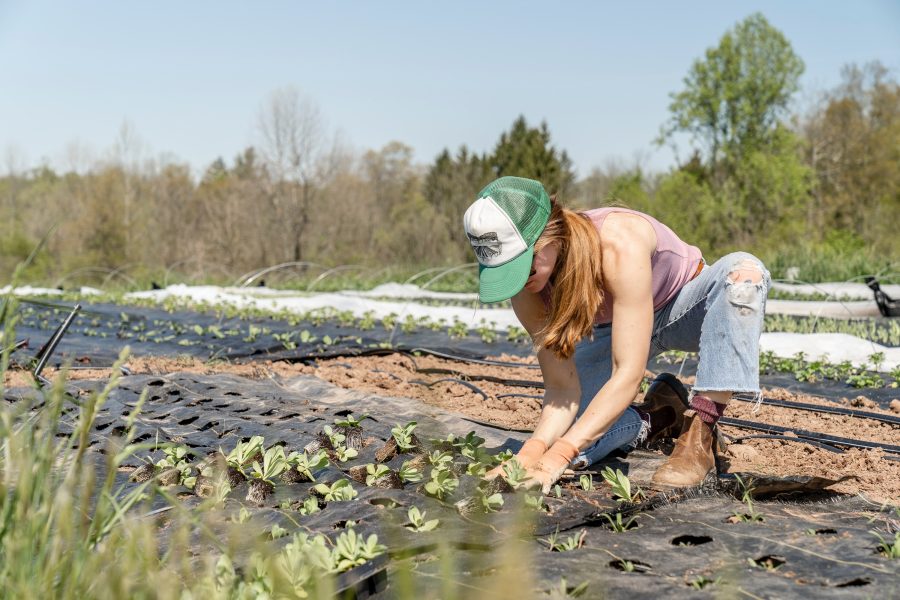
Ever wondered how does organic farming help the environment? Dive in to discover the sustainable magic behind soil, crops, and a greener Earth.
Have you ever taken a moment to think about how does organic farming help the environment?
It’s more than just a trend or a label on your favorite veggies. It’s a movement, a choice, and a commitment to our planet.
Let’s unpack the beauty of this earth-friendly approach and see what makes it so special.
How Does Organic Farming Help the Environment
Organic farming helps the environment by promoting soil biodiversity, reducing groundwater pollution, and enhancing carbon sequestration. It avoids the use of Genetically Modified Organisms (GMOs) and relies on natural crop rotation and organic fertilizers. This approach combats biodiversity loss and offers vital ecosystem services, fostering a balanced agro-ecosystem.
Ever paused to consider the buzz around organic farming? Well, there’s a good reason it’s making waves.
In our journey today, we’ll delve deep into how organic farming plays its part in safeguarding our environment.
From the secrets of soil biodiversity to the wonders of carbon capture, we’re about to embark on a green adventure, exploring the many ways organic practices are shaping a brighter, more sustainable future. Ready to dig in?
A brief overview of organic farming and its significance in the current agricultural landscape
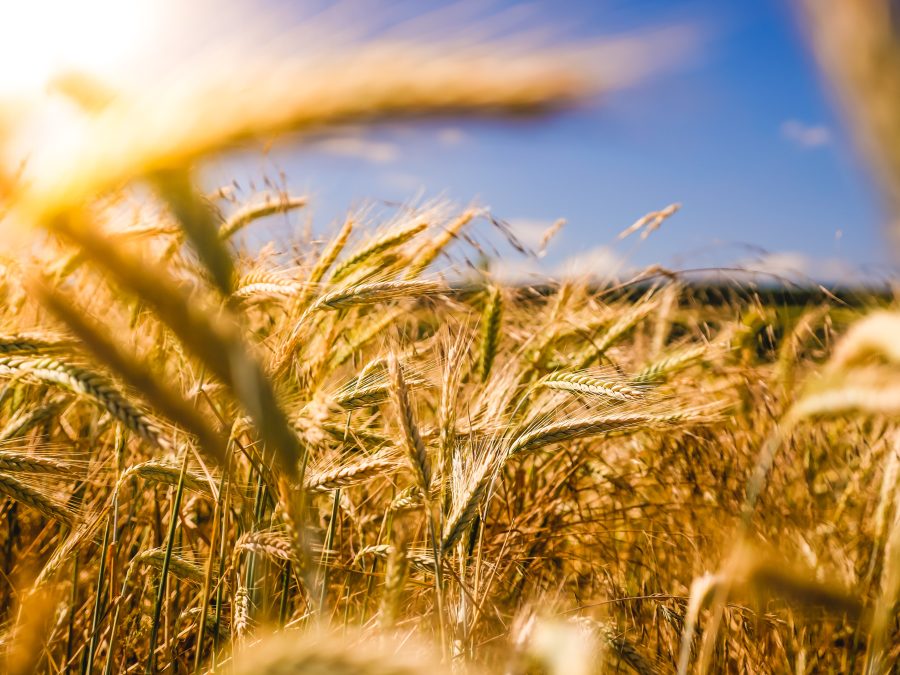
Organic farming! It’s not just a buzzword you see on fancy grocery store shelves. Let’s break it down a bit.
Organic farming is like giving Mother Nature the steering wheel, allowing her to lead the way in food production.
It’s all about ditching those harsh chemicals and synthetic fertilizers and embracing natural methods.
Think of it as the traditional way our grandparents might have farmed but with a sprinkle of modern knowledge.
And why is it gaining so much traction these days?
Well, as we become more conscious of our planet’s health and our own well-being, organic farming stands out as a beacon of sustainability in today’s agricultural scene.
It’s not just about healthier food; it’s about creating a balance in our ecosystem, ensuring that the land we farm today remains fertile and vibrant for future generations.
So, every time you opt for an organic apple or a free-range egg, remember, it’s a nod to a movement that’s reshaping our world, one crop at a time.
Organic farming, also known as ecological farming or biological farming, is an agricultural system that uses fertilizers of organic origin such as compost manure, green manure, and bone meal and places emphasis on techniques such as crop rotation and companion planting. It originated early in the 20th century in reaction to rapidly changing farming practices.
The Environmental Benefits of Organic Farming

Alright, let’s dive a bit deeper, shall we? When we talk about organic farming, it’s not just about those juicy tomatoes or crisp lettuce.
It’s about the bigger picture and our planet’s well-being. So, what makes organic farming the environmental superstar it’s touted to be?
From the air we breathe to the soil beneath our feet, organic practices touch every corner of our environment.
In this section, we’ll unwrap the many environmental gifts organic farming brings to the table.
Trust me, by the end of it, you’ll see your organic grocery haul in a whole new light!
Sustainability and Long-Term Impact
Let’s kick things off with a chat about sustainability and its long-term impact.
You know, sustainability isn’t just a trendy word to throw around at dinner parties. It’s the heart and soul of organic farming.
Imagine farming as a marathon, not a sprint. It’s all about ensuring our fields remain lush and fertile, not just for a season, but for generations to come.
And that’s where organic farming shines! By focusing on the long game, it nurtures an ecological balance, ensuring our soils remain rich and free from those pesky pest problems.
Emphasis on the long-term ecological balance and prevention of soil fertility or pest problems
Ever thought of farming as a delicate dance with nature? It’s all about balance.
Organic farming is like a seasoned dancer, gracefully maintaining a long-term ecological rhythm.
Instead of quick fixes, it’s about nurturing the soil, ensuring it stays fertile and vibrant season after season.
And those annoying pests? Well, organic methods have a knack for keeping them in check without resorting to harsh chemicals.
It’s a harmonious approach, ensuring the land remains healthy and productive, not just today, but for years to come.
It’s truly nature and farming, hand in hand, doing the tango!
Soil Health and Conservation

Let’s dig a little deeper, quite literally, into the world beneath our feet: the soil.
Think of soil as the unsung hero of our environment. It’s not just dirt; it’s a living, breathing entity teeming with life.
Organic farming is like a spa treatment for this precious resource. It’s all about pampering the soil, ensuring it stays healthy, vibrant, and full of life.
From wriggly earthworms to the tiniest of microbes, organic practices ensure they all thrive.
And when the soil is happy, it rewards us with bountiful harvests.
So, let’s dive into the fascinating realm of soil health and conservation, and discover how organic farming is making a world of difference, one handful of earth at a time!
Role of crop rotations, inter-cropping, and organic fertilizers
Let’s dive into the heart of organic farming practices. Ever wondered how farmers keep their soil so vibrant without those heavy-duty chemicals?
It’s a mix of smart farming techniques like crop rotations, inter-cropping, and the use of nature’s very own fertilizers.
Let’s explore how these methods are the unsung heroes of the organic world.
Crop Rotations: Picture this: Instead of wearing the same outfit every day (which would be pretty boring, right?), the land gets to ‘change its clothes’ with different crops.
This isn’t just for variety’s sake. Rotating crops helps the soil recover and reduces the risk of pests and diseases that might get too comfortable if the same crop is planted year after year.
Inter-Cropping: It’s like planting buddies for crops. By growing different crops close together, they can help each other out.
Some plants might repel pests that would typically bother their neighbors, while others might enrich the soil, giving their plant pals a boost. It’s teamwork at its finest!
Organic Fertilizers: Think of these as the ultimate health smoothie for the soil.
Instead of synthetic chemicals, organic fertilizers come from natural sources like compost, worm castings, and seaweed.
They feed the soil with all the good stuff, ensuring plants grow strong and healthy.
Reduction of soil erosion and enhancement of soil biodiversity
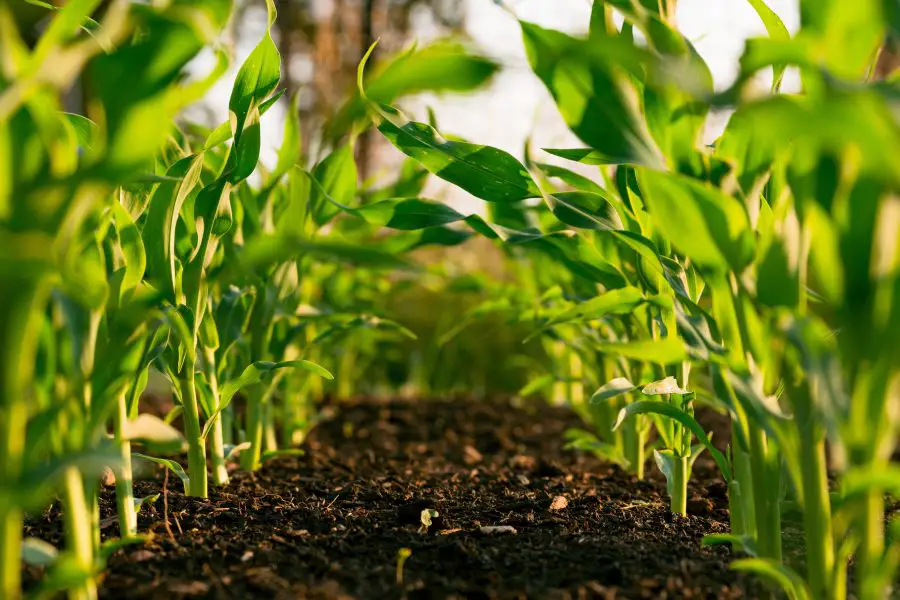
Moving a layer deeper, the soil is more than just dirt; it’s a living, breathing universe teeming with life.
But how do organic farmers ensure it doesn’t just wash away and that it remains bustling with life?
The answer lies in some thoughtful practices that prioritize the health of the land. Let’s unearth these secrets!
Reduction of Soil Erosion:
Soil erosion is like the land’s version of hair loss. We don’t want our precious soil being washed or blown away.
Organic farming practices, like planting cover crops and using natural barriers, ensure the soil stays put.
It’s all about giving the land a protective shield against the elements.
Enhancement of Soil Biodiversity:
Dive into a handful of healthy soil, and you’ll find a bustling metropolis of life! From tiny microbes to beneficial insects, organic farming ensures this underground city thrives.
By avoiding harsh chemicals and promoting natural practices, the soil becomes a haven for countless organisms. And guess what?
They all play a part in creating a fertile, vibrant ecosystem ready to nurture our crops. It’s nature’s circle of life, right under our feet!
Water Conservation and Quality
Alright, let’s shift gears and talk about something we all cherish: water.
It’s not just about quenching our thirst or taking that refreshing morning shower.
Water plays a starring role in farming too. But with organic practices, there’s a twist.
It’s not just about using water; it’s about using it wisely and ensuring what goes back into our rivers and lakes is clean.
Dive in with me as we explore how organic farming is making waves in water conservation and quality.
Reduced risk of groundwater pollution
Ever thought about where all those chemicals and synthetic fertilizers end up after heavy rainfall?
Sadly, they often seep into our groundwater, the same water many of us rely on for drinking.
But here’s the good news: organic farming by opting for natural fertilizers and pest control methods drastically reduces the risk of polluting our precious groundwater.
It’s like choosing a reusable water bottle over a disposable one; it’s a small step with a big impact.
Efficient water infiltration due to better soil structure
Let’s talk about soil again, but this time, imagine it as a sponge.
A healthy, well-structured soil can absorb and hold onto water much better than compacted or degraded soil.
And guess what? Organic farming is all about maintaining that sponge-like quality.
With practices like composting and avoiding heavy machinery, the soil remains loose and porous.
This means when it rains, the water seeps in efficiently, nourishing plants and replenishing underground water reserves.
It’s like giving the soil its very own spa treatment, ensuring it’s always hydrated and happy!
Air Quality and Climate Change Mitigation
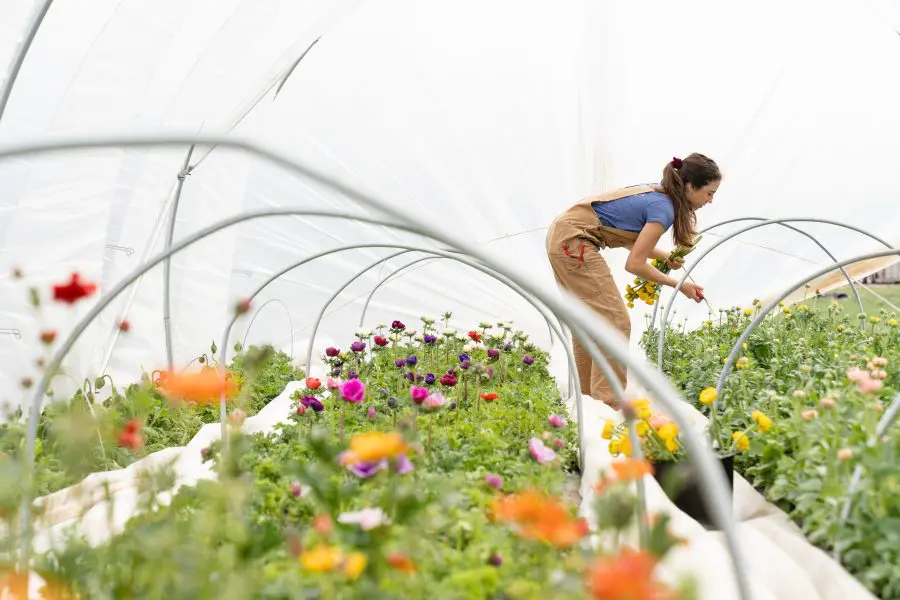
Let’s take a moment to talk about the air we breathe and the world we hope to leave behind for future generations.
When it comes to farming, it’s not just about the ground beneath our feet; it’s also about the skies above.
Organic farming is stepping up as a game-changer in the fight against climate change and for cleaner air.
Curious about how tending to crops can impact our atmosphere and the global climate?
Let’s journey together into the refreshing world of organic farming’s role in air quality and climate change mitigation.
Reduction in non-renewable energy use
Picture this: a world where we rely less on those finite resources buried deep within the Earth, like oil and coal. Sounds dreamy, right?
Organic farming is helping turn that dream into a reality.
By steering clear of synthetic fertilizers and pesticides, which require a ton of energy to produce, organic farming leans more on the sun, rain, and natural processes.
It’s like choosing to ride a bike to the local store instead of driving a gas-guzzling car.
Not only do we save on those non-renewable resources, but we also give our planet a little breather.
Carbon sequestration capabilities of organic farming
Now, let’s chat about a term that might sound a bit sci-fi but is super cool: carbon sequestration.
In simple terms, it’s all about trapping and storing carbon dioxide from the atmosphere. And guess what?
Organic farms are pros at this! With their lush cover crops and rich, healthy soils, they act like giant sponges, soaking up carbon and storing it safely away.
It’s nature’s way of saying, I got this! By supporting organic farming, we’re essentially backing one of Earth’s top defenders in the battle against climate change. How awesome is that?
Biodiversity Enhancement
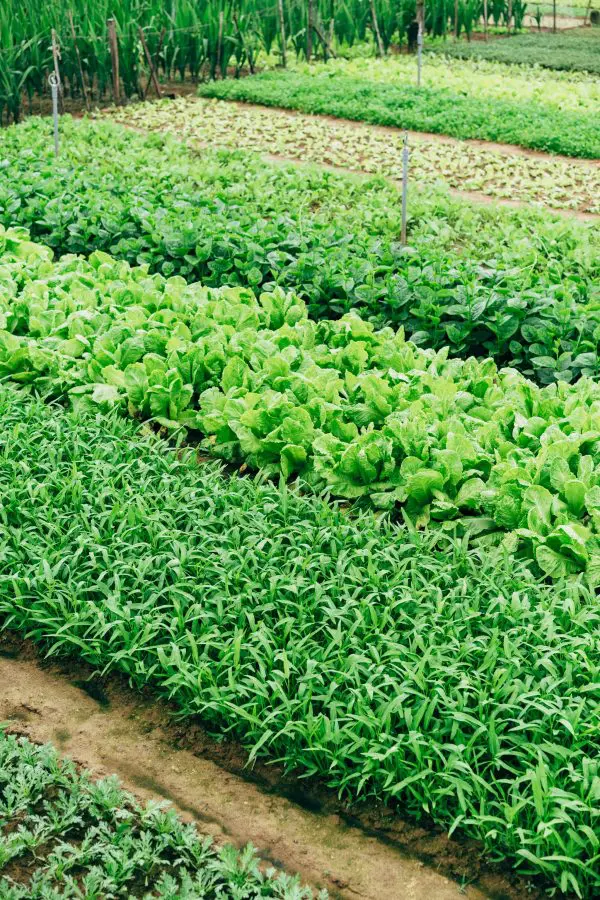
Let’s take a whimsical journey into the world of biodiversity. Imagine a vibrant tapestry woven with countless threads, each representing a different species.
From the tiniest microbe to the majestic elephant, every thread has its place.
Now, what if I told you organic farming is like a guardian of this intricate masterpiece? It’s true!
Organic practices play a pivotal role in enhancing and preserving the rich diversity of life on our planet.
Ready to explore how farming can be a champion for biodiversity? Let’s dive in and celebrate the symphony of life!
Promotion of genetic diversity and habitat for various species
Let’s think of our planet as a grand, bustling city. In this city, every alley, park, and building is home to countless residents, each unique and essential.
Similarly, in the world of biodiversity, every plant, insect, and animal brings its own flavor to the mix.
Organic farming is like the city planner who ensures every resident has a cozy corner to call home.
By avoiding synthetic chemicals and promoting natural habitats, organic farms become havens for a myriad of species.
From the bees buzzing above to the worms wriggling below, there’s a celebration of genetic diversity.
It’s not just about growing crops; it’s about nurturing an environment where every creature, big or small, can thrive.
It’s like turning a simple garden into a lively party, where everyone’s invited and everyone plays a part in the grand dance of nature.
Reduction in GMO Usage
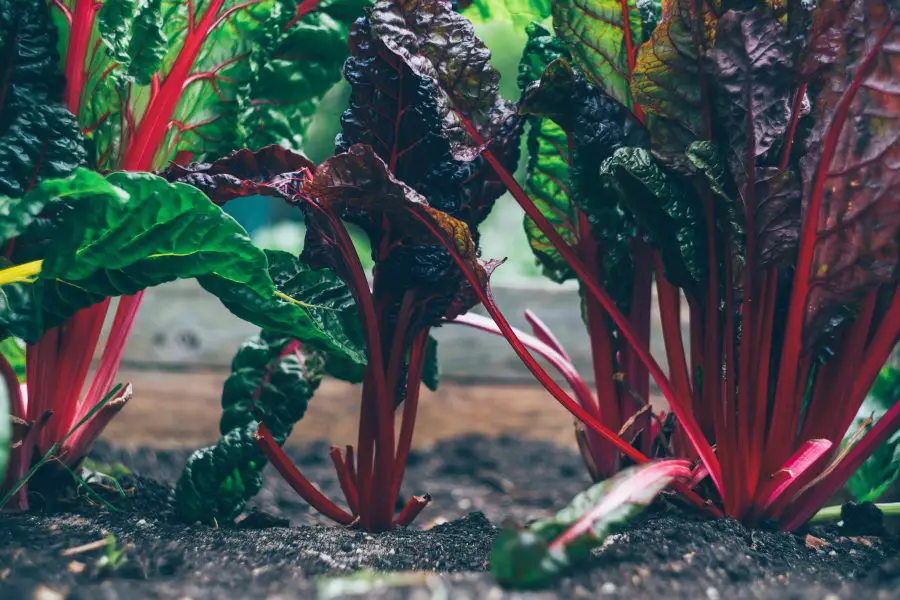
Alright, let’s chat about something that’s been a hot topic for a while now: GMOs, or Genetically Modified Organisms.
You’ve probably seen debates about them on TV or read articles discussing their pros and cons.
But when it comes to organic farming, the stance is pretty clear.
Organic practices take a step back from the world of GMOs, embracing nature’s original designs.
Curious about why and how this choice impacts our environment and our plates?
Let’s dive into the world of organic farming and its commitment to reducing GMO usage.
Precautionary approach to GMOs and assurance of GMO-free products
So, you’ve probably heard friends or family passionately discussing GMOs at some point, right?
It’s a topic that can stir up quite a debate. But here’s the scoop when it comes to organic farming: it’s all about erring on the side of caution.
Think of it like being at a buffet with a mystery dish. If you’re unsure about the ingredients, you might skip it, right?
Similarly, organic farming takes a precautionary approach to GMOs, choosing to stick with what nature has naturally provided.
This commitment ensures that when you pick up an organic product, you’re getting something that’s GMO-free.
It’s a promise, a seal of trust. So, the next time you’re munching on an organic snack, you can relish not just its taste but also the peace of mind that comes with knowing it’s free from genetically modified ingredients.
It’s all about keeping things natural, just the way Mother Nature intended!
Economic and Social Benefits of Organic Farming
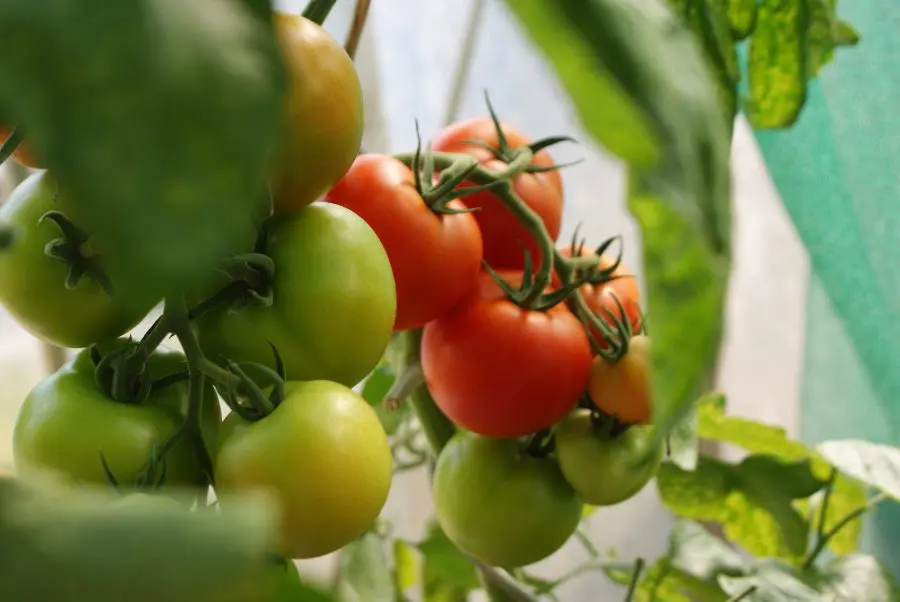
Alright, we’ve chatted about the environment, but let’s switch gears a bit.
Beyond the fields and the fresh produce, organic farming has ripple effects that touch our wallets and our communities.
It’s not just about healthier soils and cleaner air; it’s also about vibrant local economies and stronger social bonds.
Curious about how choosing organic can impact your neighborhood and maybe even your pocketbook?
Let’s journey together into the economic and social perks that organic farming brings to the table.
Trust me, it’s more than just delicious veggies!
Profitability for Farmers
Let’s take a moment to tip our hats to the real heroes behind those fresh organic veggies and fruits: the farmers.
Ever wondered what goes on behind the scenes of that organic label and how it impacts those tending to the fields?
Well, it’s not just about farming with nature; it’s also about ensuring a fair reward for all that hard work.
Dive in with me as we explore how organic farming isn’t just good for the earth, but also brings a smile to the faces of our dedicated farmers by boosting their profitability.
Higher profitability due to consumer willingness to pay more for organic products
Picture this: you’re at the grocery store, and you’re faced with two apples.
One’s organic, and the other isn’t. You notice the organic one is a tad pricier, but you opt for it anyway. Why?
Because you value the effort and care that went into growing it without harmful chemicals.
This choice, made by consumers like you every day, is a game-changer for farmers.
Organic farming, with its emphasis on natural and sustainable practices, often requires more labor and attention to detail.
But here’s the silver lining: consumers recognize this effort and are willing to pay a bit extra for the peace of mind that comes with organic products.
This willingness translates to higher profitability for farmers. It’s a beautiful cycle really.
Farmers commit to nurturing the earth, and in return, consumers show their appreciation by supporting their endeavors.
It’s like giving a standing ovation to farmers for their dedication to keeping things natural and pure.
And in the end, both the earth and the farmers win!
Job Creation and Community Health
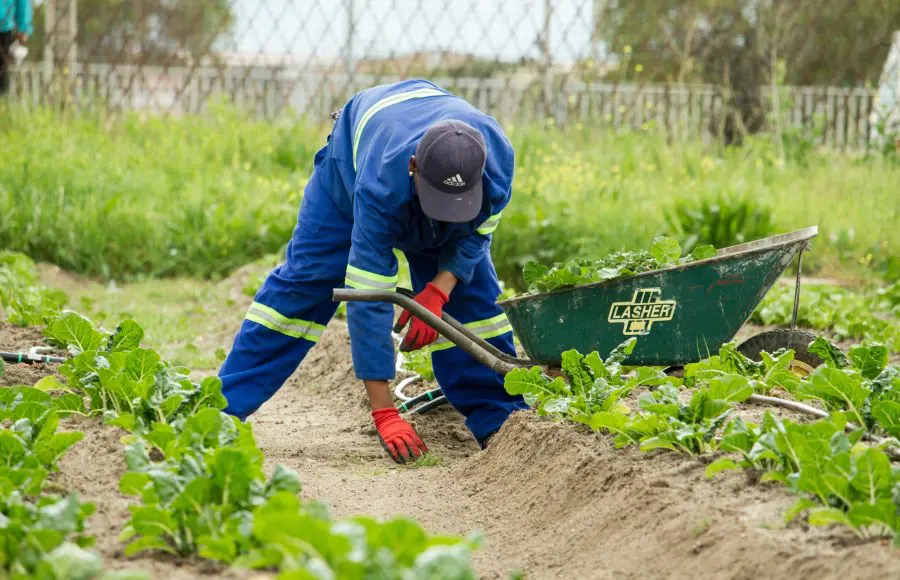
Shifting our gaze from the fields to the broader community, there’s another beautiful story unfolding.
Organic farming isn’t just about crops and soil; it’s a catalyst for positive change in our neighborhoods.
Beyond the farm gates, organic practices are sowing seeds of opportunity, sprouting new jobs, and nurturing the overall well-being of our communities.
Curious about how your organic choices can light up someone’s day or even transform a local community?
Let’s delve into the heartwarming world of job creation and community health, all thanks to organic farming.
More employment opportunities and reduced exposure to harmful chemicals for farm workers
Let’s take a stroll down an organic farm, shall we? As we wander, you’ll notice there’s a lot happening.
From tending to crops to managing pests the natural way, organic farming is hands-on work.
And this hands-on approach translates to more job opportunities. Unlike conventional farms that might rely heavily on machines and chemicals, organic farms often need more hands on deck.
This means more jobs for the local community, from planting seeds to harvesting.
But there’s another side to this coin that’s equally heartwarming. Ever thought about the folks who work day in and day out in the fields?
In organic farms, they’re not just working; they’re working in safer environments.
Without the cloud of harmful chemicals hovering around, farm workers face fewer health risks. It’s a win-win!
They get to earn a living and do so in a space that respects their health and well-being.
So, the next time you enjoy an organic treat, remember, it’s a product of love, care, and a community that’s thriving in more ways than one!
Consumer Health Benefits
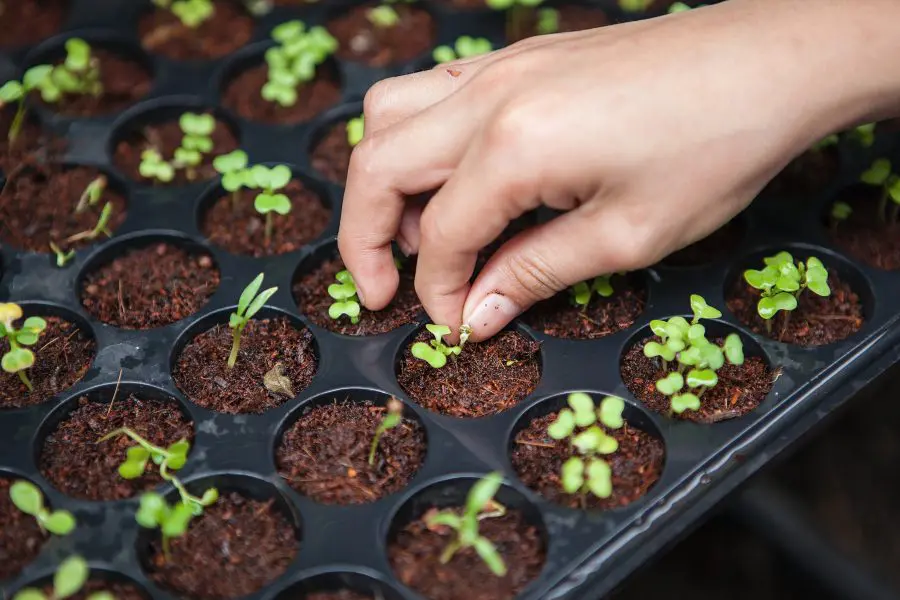
Alright, let’s bring the spotlight back to you, the consumer.
Ever had that proud moment at the checkout counter with a cart full of organic goodies?
It’s not just a feel-good choice for the planet; it’s a pat on the back for your own health too.
Organic isn’t just a label; it’s a promise of purity, a commitment to keeping things natural from the farm to your fork.
Ready to discover how your organic choices are not only a treat for your taste buds but also a boon for your well-being?
Let’s dive into the wholesome world of consumer health benefits, all thanks to organic farming.
Nutritious foods with fewer pesticide residues
Let’s start with a simple question: Why do we eat? Apart from the sheer joy of savoring delicious flavors, it’s about nourishing our bodies, right?
Now, imagine giving your body the best of the best. Organic farming serves up just that.
When you bite into an organic apple or whip up a salad with organic veggies, you’re getting a burst of nutrients.
It’s like nature’s way of saying, Here, have some extra vitamins and minerals on the house!
But there’s more to the story. Organic foods come with a bonus: fewer unwanted extras.
I’m talking about those pesky pesticide residues that often linger on conventionally grown produce.
Organic farming takes a hard pass on synthetic pesticides, ensuring that what ends up on your plate is as pure as nature intended.
So, with every organic meal, you’re not just feeding your hunger; you’re making a conscious choice for cleaner, more nutritious food.
It’s like choosing a freshly squeezed juice over a sugary soda. Your body will thank you, and honestly, so will your taste buds!
Challenges and Criticisms of Organic Farming

Alright, as much as we’ve been singing praises for organic farming, it’s essential to keep our feet on the ground and acknowledge that it’s not all sunshine and rainbows.
Like any approach, organic farming has its set of challenges and critics.
It’s crucial to look at the whole picture, warts and all, to make informed choices.
Ready to explore the other side of the organic coin? Let’s dive into some of the hurdles and criticisms that organic farming faces, and understand the full story behind our organic labels.
Yield Concerns
Let’s start with a topic that often pops up in conversations about organic farming: yield.
It’s the age-old question of quantity versus quality. While organic practices promise cleaner, more sustainable crops, there’s a debate about how much they can produce compared to conventional methods.
Can organic farms keep up with the world’s growing appetite?
Let’s delve into the nitty-gritty of yield concerns and see what’s really happening out in those organic fields.
Addressing the argument that organic farming produces lower yields
So, you’ve probably heard the chatter, right? Some folks argue that while organic farming is all well and good for the environment, it might not feed the world because of its potentially lower yields.
Let’s unpack that.
First off, it’s true that in some cases, organic farming might produce slightly less than conventional methods, especially when you look at single-crop comparisons.
But here’s the twist: it’s not always about sheer quantity. It’s about resilience, sustainability, and long-term vision.
Organic farms, with their diverse ecosystems, can be more resilient in the face of challenges like pests, diseases, or even changing climate conditions.
Moreover, while the yields might be a tad lower, the benefits often outweigh the drawbacks.
Think of healthier soils, cleaner water, and fewer harmful chemicals in our food.
Plus, as organic farming techniques continue to evolve and improve, the gap in yields is narrowing.
Lastly, it’s essential to remember that feeding the world isn’t just about producing more food.
It’s about reducing waste, ensuring equitable distribution, and making sustainable choices.
So, while the yield debate is valid, organic farming brings a lot more to the table than just numbers.
It’s a holistic approach, looking at the bigger picture of our planet’s health and our future.
Economic Concerns

Shifting our focus from the fields to the financial side of things, let’s talk money.
Organic farming, with all its environmental perks, does come with its own set of economic challenges.
From the costs of getting certified to the pricing of organic products, there’s a lot to consider.
Ever wondered why that organic label sometimes comes with a heftier price tag?
Or why some farmers hesitate to make the organic switch?
Let’s dive deep into the economic concerns surrounding organic farming and get a clearer picture of the dollars and cents behind the scenes.
Higher costs for consumers
We’ve all been there, haven’t we? Standing in the grocery aisle, comparing prices, and wondering why organic products often come with a slightly steeper price tag.
Let’s break down the why behind those numbers.
Organic farming, with its commitment to natural and sustainable methods, can sometimes be more labor-intensive.
Think about it: without synthetic pesticides to ward off pests or chemical fertilizers to boost growth, farmers often need to rely on manual methods.
This might mean more hands on deck, more time spent nurturing the crops, and sometimes, more innovative (and costly) solutions.
Then there’s the certification process. Getting that organic stamp isn’t just about following the practices; it’s about proving it.
Regular inspections, paperwork, and adhering to strict guidelines can add to a farmer’s expenses.
But here’s the silver lining. When you pay a bit extra for organic, you’re not just buying a product; you’re buying a promise.
A promise of cleaner food, sustainable practices, and a nod to the health of our planet.
It’s like choosing to invest in a quality product that offers long-term benefits over a cheaper, short-term alternative.
So, the next time you’re at the checkout counter with your organic haul, remember: it’s not just about the cost; it’s about the value.
And sometimes, the best things in life are worth paying a little extra for!
Future Prospects and Research Needs
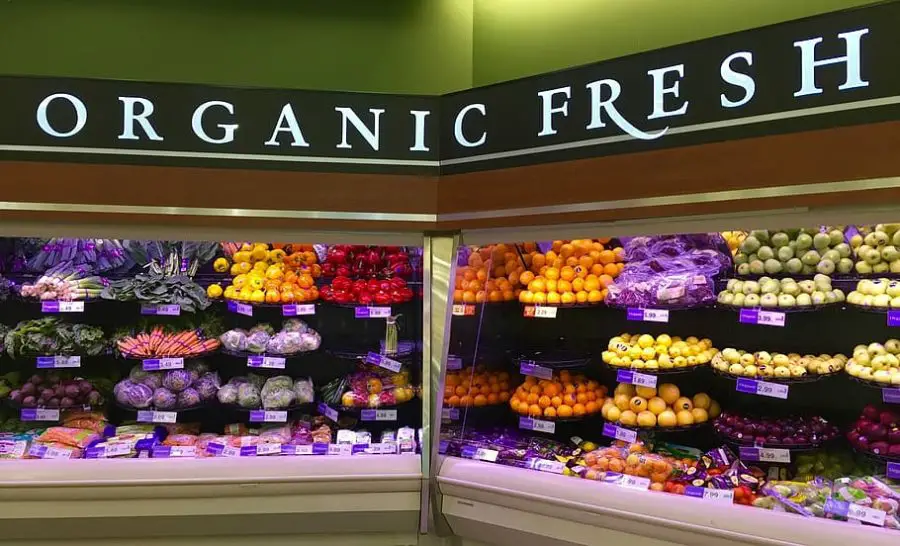
Peering into the future, where does organic farming stand?
It’s an exciting time, with so much potential and yet, so many questions still to be answered.
As we look ahead, it’s clear that organic farming is more than just a trend; it’s a movement with deep roots and vast horizons.
But like any journey, there are challenges to face and mysteries to unravel.
From evolving practices to groundbreaking research, the road ahead is filled with promise and curiosity.
Let’s embark on this forward-looking journey, exploring the future prospects of organic farming and the research that will light our way.
Emphasis on the need for more research to bridge the yield gap and ensure sustainability
The world of organic farming is like an ever-evolving puzzle.
While we’ve made significant strides, there’s still a piece that many are keen to fit into place: the yield gap.
It’s that lingering question of whether organic farming can match or even surpass the yields of conventional methods.
Now, here’s where the magic of research comes into play.
Imagine scientists and farmers, hand in hand, delving deep into the mysteries of the soil, seeds, and seasons.
The goal? To uncover innovative techniques that can boost organic yields without compromising on sustainability.
It’s like trying to bake the perfect cake, tweaking the recipe bit by bit until it’s just right.
But why is this research so crucial? Well, as our global population grows, so does our need for food.
And with the challenges of climate change knocking on our door, it’s more important than ever to find farming methods that are both productive and planet-friendly.
So, as we stand on the cusp of a new era in agriculture, the call for research is loud and clear.
By investing in studies, trials, and innovations, we’re not just looking to bridge a gap; we’re aiming to pave a sustainable path for the future.
A future where organic farming doesn’t just thrive but leads the way in feeding our world.
How does organic farming impact the environment? FAQs
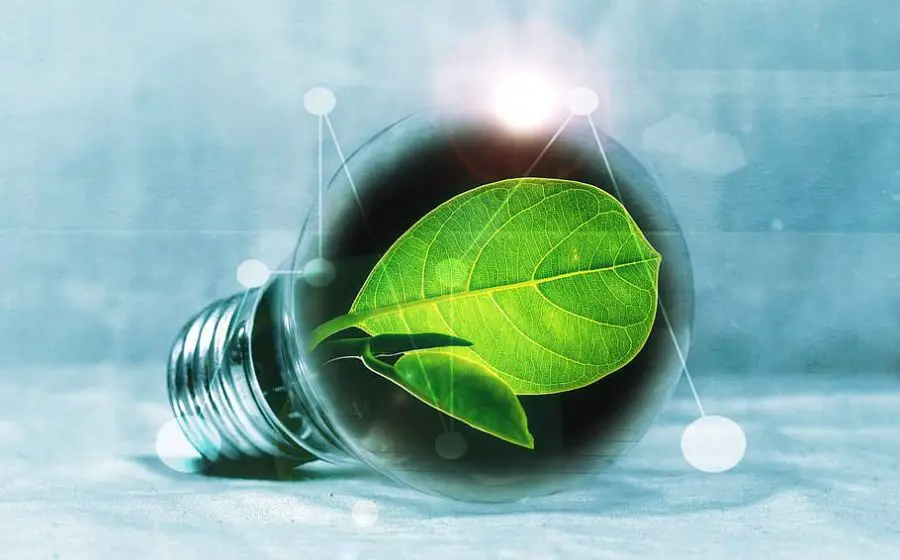
Alright, let’s switch things up a bit! We’ve delved deep into the world of organic farming, but I bet there are still some burning questions dancing around in your mind. You’re not alone!
Many folks have queries, curiosities, and even some misconceptions about organic practices.
So, let’s tackle them head-on. Dive into this FAQ section with me, where we’ll address some of the most common questions and shed light on the intriguing world of organic farming.
Ready to quench that curiosity? Let’s get started!
Q: Is organic farming capable of feeding the global population?
A: Great question! Organic farming has shown significant promise in producing sustainable and healthy food.
While in some cases it might produce slightly lower yields compared to conventional methods, it offers benefits like soil health, biodiversity, and reduced environmental impact.
With advancements in organic techniques and more investment in research, it’s believed that organic farming can indeed play a crucial role in feeding the global population.
However, it’s also essential to address other factors like food distribution, waste reduction, and consumption patterns to ensure global food security.
Q: Why is organic food more expensive?
A: Organic food often comes with a higher price tag due to several reasons.
First, organic farming practices can be more labor-intensive without the use of synthetic pesticides and fertilizers.
Second, the certification process for organic products can be costly for farmers.
Additionally, organic farms are typically smaller in scale, and without the economies of scale that larger farms enjoy, costs per unit can be higher.
Lastly, the demand for organic products currently outpaces the supply, which can also drive up prices.
But remember, when you buy organic, you’re also investing in environmental health, better farming practices, and often, improved worker conditions.
Q: What are the regulations behind organic labeling?
A: Organic labeling is governed by strict regulations to ensure consumers get genuine organic products.
In many countries, for a product to be labeled as organic, it must be produced without synthetic pesticides, herbicides, and fertilizers.
Genetically modified organisms (GMOs) are also typically excluded from organic production.
Farms must undergo regular inspections and adhere to specific standards set by regulatory bodies.
For instance, in the U.S., the USDA has established guidelines for organic labeling, and only products that meet these standards can carry the USDA Organic seal.
Q: How does organic farming contribute to climate change mitigation?
A: Organic farming plays a pivotal role in climate change mitigation in several ways.
First, by avoiding synthetic fertilizers, organic farming reduces the emissions of nitrous oxide, a potent greenhouse gas.
Additionally, organic farms often practice carbon sequestration, where they capture and store atmospheric carbon dioxide in the soil.
This is achieved through methods like agroforestry, cover cropping, and maintaining perennial plants.
Furthermore, organic farming promotes biodiversity and healthier soils, which can act as carbon sinks.
By supporting organic practices, we’re essentially backing a more sustainable and climate-friendly approach to agriculture.
How Organic Farming Helps the Environment Conclusion
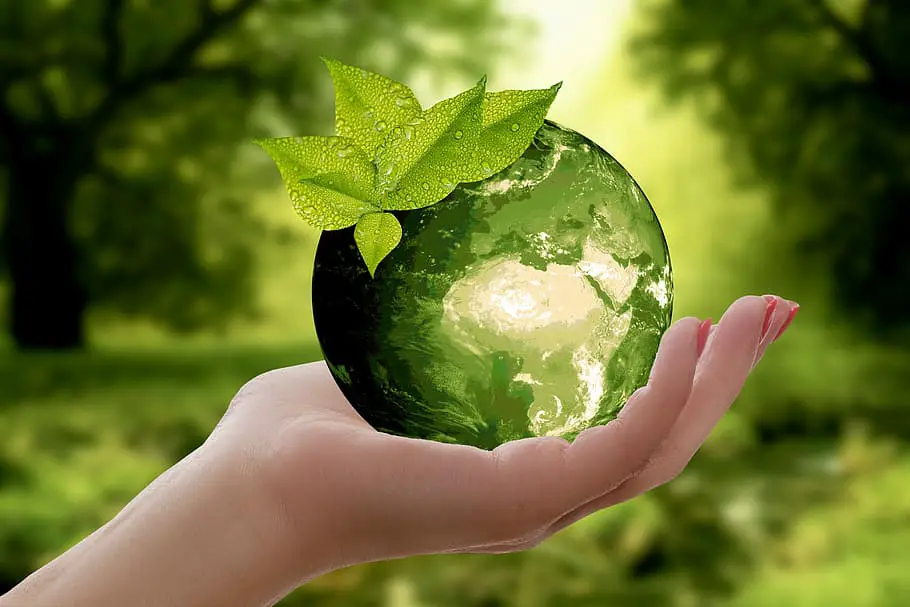
As we wrap up our deep dive into the world of organic farming, it’s clear that this isn’t just a fleeting trend or a niche interest.
It’s a movement, a commitment to our planet, our health, and our future.
From the bustling activity in the soil beneath our feet to the global conversations about sustainability, organic farming touches every facet of our lives.
But before we part ways, let’s take a moment to reflect on our journey, the insights we’ve gained, and the choices we can make moving forward.
Ready for some concluding thoughts? Let’s tie it all together!
The potential of organic farming in achieving a sustainable and environmentally-friendly agricultural future
As we stand at the crossroads of agricultural choices, organic farming shines brightly as a beacon of hope.
It’s not just about ditching chemicals or following trends; it’s about reimagining how we interact with the earth.
Organic farming champions the idea of working with nature, rather than against it.
By prioritizing soil health, biodiversity, and natural processes, it offers a blueprint for an agricultural future that’s not only sustainable but also harmonious with our environment.
Think of it as a partnership, where humans and nature collaborate, each respecting the other’s role.
And the results? Healthier crops, thriving ecosystems, and a planet that breathes a little easier.
So, as we envision the future of food and farming, organic practices stand out as a promising path towards a greener, more sustainable tomorrow.

